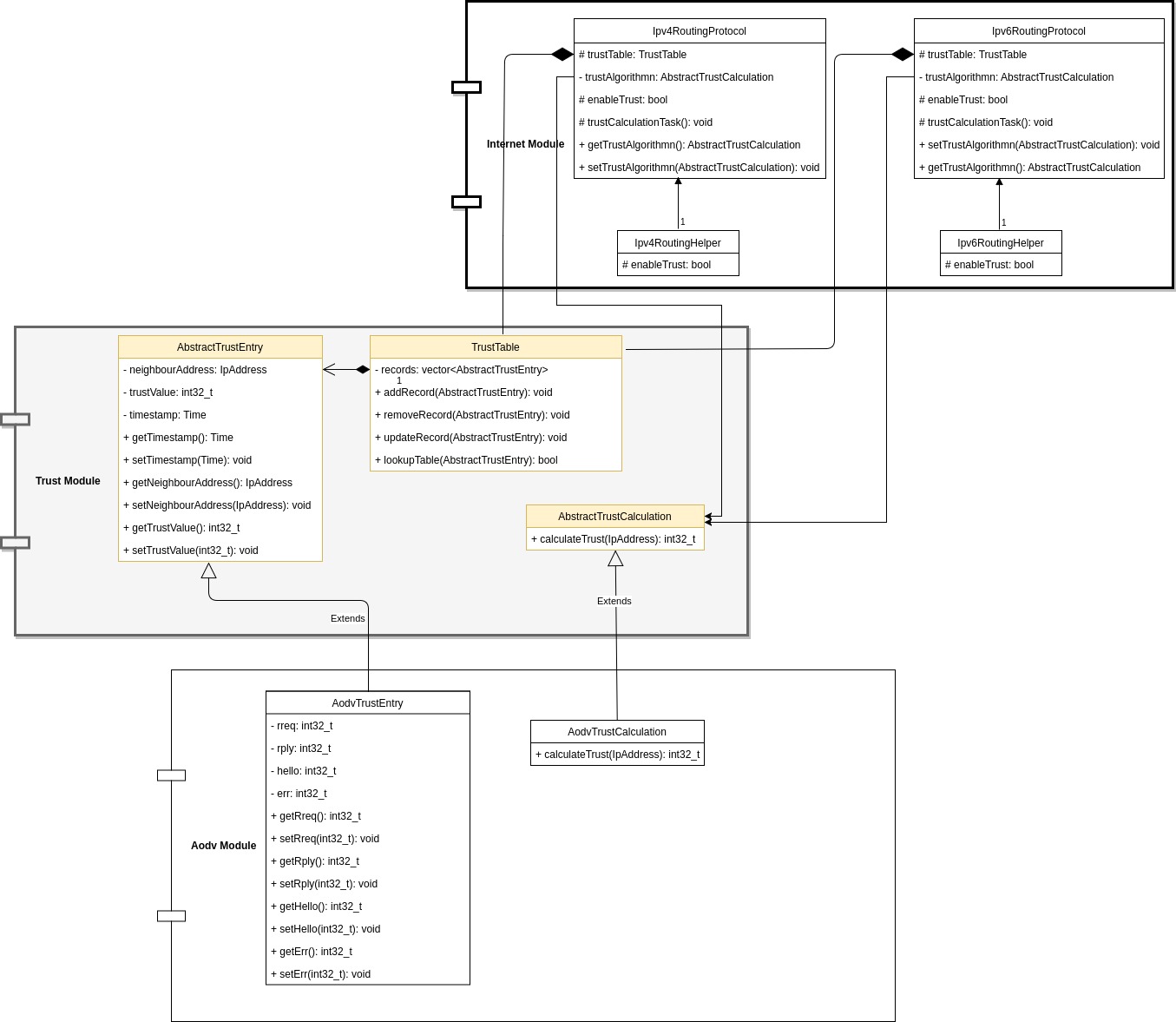GSoC2018:Trust-based routing protocols framework
Return to GSoC 2018 Accepted Projects page.
Project Overview
- Project name: Trust-based routing protocols framework
- Student: Jude Niroshan
- Mentor: Tommaso Pecorella
- Abstract: ns-3 contains different routing modules, both for IPv4 and for IPv6. None of them is trust-based. Given the increasing interest on trust-based routing schemes to increase and improve the network resilience Vs routing attacks, it would be useful to have a general approach for Trust-based schemes. As a matter of fact, there are multiple trust-based extensions for well known protocold (e.g., AODV), but each one modifies in a particular way the single routing protocol, making it difficult to export the solution to other routing schemes.
- Code: Github repository
- About me: I am an undergraduate student at the Sri Lanka Institute of Information Technology(SLIIT), Sri Lanka. I'm so excited to work with ns-3 community during the summer of 2018. You can find more about me on LinkedIn
Introduction
Wireless ad hoc networks are susceptible to attacks by malicious nodes that could easily bring down the whole network. Therefore, it is important to have a reliable mechanism for detecting and isolating malicious nodes before they can do any harm to the network. Routing protocols in mobile ad hoc and sensor networks discover usable multi-hop routes between source and destination nodes. However, some of the routes found and used may not be as reliable or trustable as expected. Thus, finding a trusted route is an important component for enhancing the security of communication. Enhanced trust and security are achieved by the maintenance of a trust factor by the nodes in the network. This factor is established and refined over time and it increases for each node when it participates successfully in data transmissions.
As of now NS-3 does not support to simulate the above mentioned trust based routing protocols. If somebody wants to simulate such an environment, there are lot of changes needs to be done in many concrete classes. This is cumbersome and it is against the conventions that we follow from the maintainence point of view. Therefore, this project is aimed to facilitate a new trust module which enables the capability of implementing a trust based algorithm to NS-3 and let the users to tryout the simulations based upon them.
New trust module consists of abstract classes which can be extended and implemented as the user's preferences. Users can extend the AbstractTrustCalculation class and implement their own logic to calculate the trust measurement.
TrustTable is a new table which is similar to routing table. Trust table contains trust value related information for directly connected nodes. Users will be able to add new properties to trust table as they wish. At the same time, trust calculation logic is also feasible to change according to the above framework structure. As you can in UML, any user can define the trust calculation algorithm by simple extending the AbstractTrustCalculation class.
